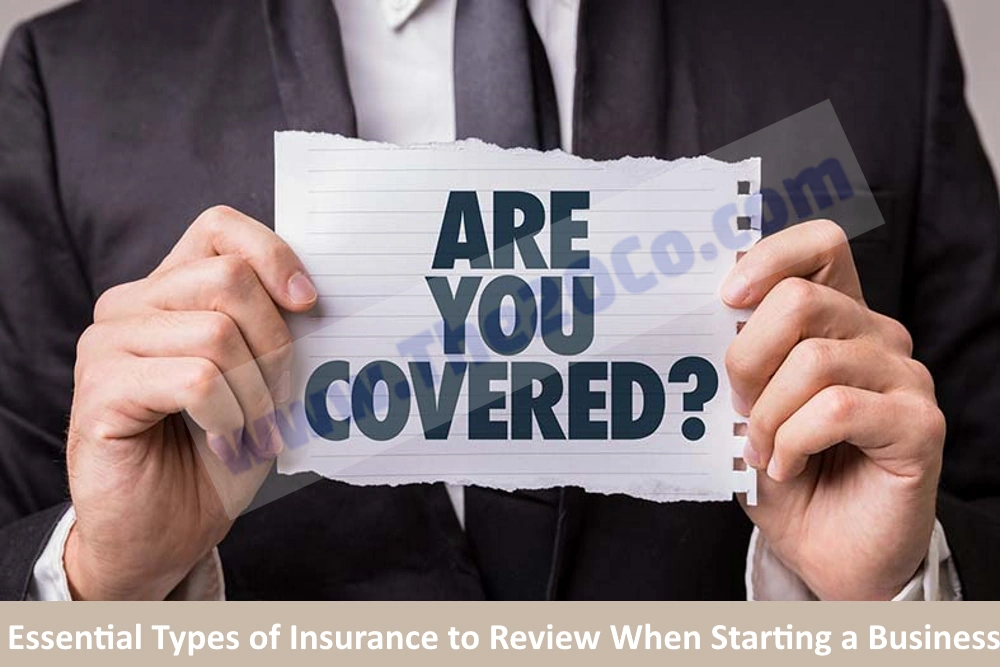Coming up with an idea that can lead to starting a business is exciting. To start the venture, entrepreneurs must work their way through a series of red tape. Plus, the startup costs.
In 2022, business owners must purchase enough insurance coverage to cover their company and personal interests.
The following are the essential types of insurance to review when starting a business.
1. Mandated
Every state is slightly different from the next one. However, most will impose at least one insurance mandate on companies in their jurisdiction. For example, Workers’ Compensation is mandated across the board.
Workers’ comp insurance covers the cost of benefits awarded to employees injured on the job. The money goes into a fund. Then, the fund pays workers’ comp claims.
Business owners who do not send their workers’ comp dues will receive penalties. Therefore, send them as required.
Another version of workers’ comp insurance to review is self-employed ghost insurance. Gigly offers more information on ghost insurance to look over.
2. Liability
Liability insurance protects companies against income loss in injury cases. For example, when the plaintiff claims that they incurred an injury at the workplace, liability insurance helps cover the company’s legal costs.
If the plaintiff wins the case, the insurance policy also helps cover the award amount.
Examples of liability insurance include:
- General
- Professional
- Product
Each liability policy addresses specific circumstances. For example, when a business venture releases a new product onto the market, it’s a good idea to insure it.
Although products go through quality assurance and testing, customers can surprise manufacturers. You never really know how a customer will use the product. That’s why so many products have warning labels.
Sometimes, companies can’t have enough liability insurance. In high-risk industries, it’s worth purchasing a Commercial Umbrella policy that extends the coverage amount further.
3. Commercial
It’s also important for business owners to explore commercial insurance types. The two most common commercial policies include:
- Vehicle
- Property
Companies that have fleets of cars must insure them, especially if your employees use them to transport clients, make deliveries, or transport employees.
Insuring commercial vehicles is similar to insuring personal vehicles. The difference is that states require higher limits for company vehicles.
It’s wise to purchase commercial property insurance too. If a customer or staff member injures themselves on your site, you become liable. It’s more true if a court finds that negligence led to the injuries.
4. Business
The point of insurance for companies is to protect them against income loss. Business Income coverage specifically protects entrepreneurs against loss of income through unforeseen circumstances such as Acts of God.
As the virus unfolded throughout the world in 2020, the insurance industry got taken to task. The majority of American companies experienced business interruptions and income loss.
Keep in mind that your niche and field will dictate the best policies to obtain. As you go through the list of types, speak with an insurance agent who can add professional advice too.
5. Malpractice
The business version of malpractice insurance for doctors is errors and omissions. E&O covers professionals against claims of negligence. Professionals that benefit from this policy include:
- Lawyers
- Accountants
- Event planners
- Writers
- Finance
- Insurance agents
A difference exists between negligence and things that remain out of the control of professionals.
Wedding planners know that the wedding day is special for the bride, groom, and their families. If the party picks an outdoor wedding and doesn’t pay for tents in case the weather takes an unfortunate turn, the wedding planner’s liability goes only so far.
Even though the planner is innocent in this situation, dealing with the legal fees cuts into profits and makes E&O insurance valuable.
Bundles
If the thought of all the possible insurance policies you’ll need and their costs become overwhelming, consider the ones you can purchase as bundles too.
For example, Business Owner’s Policy bundles property and liability coverage into one policy. It’s a nice way to save money. Plus, it’s less paperwork. Since every provider has a process, speak with an agent directly about bundling other policies.
Conclusion
Many entrepreneurs see insurance as an additional expense. However, insurance is a tool that protects companies. Even though you pay the premiums, you hope that filing a claim is never necessary. Legal fees are more expensive than insurance premiums. Explore the essential types and seek professional advice before purchasing them.

